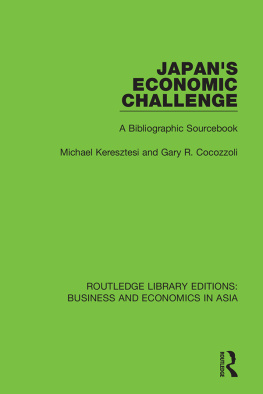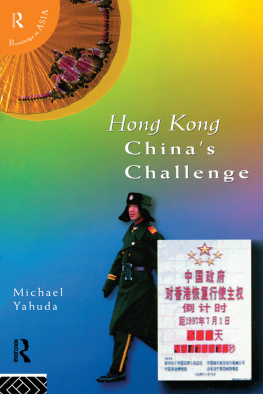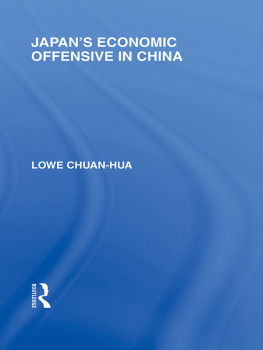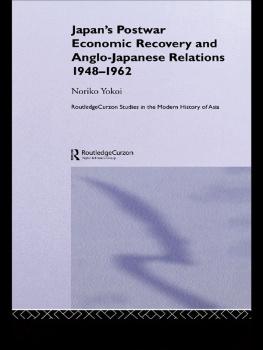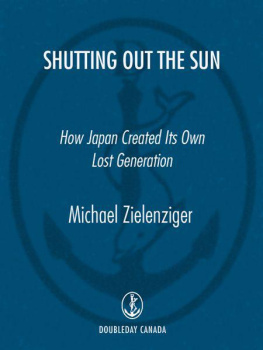First published in 1988 by Garland Publishing, Inc.
This edition first published in 2019
by Routledge
2 Park Square, Milton Park, Abingdon, Oxon OX14 4RN
and by Routledge
52 Vanderbilt Avenue, New York, NY 10017
Routledge is an imprint of the Taylor & Francis Group, an informa business
1988 Michael Keresztesi and Gary R. Cocozzoli
All rights reserved. No part of this book may be reprinted or reproduced or utilised in any form or by any electronic, mechanical, or other means, now known or hereafter invented, including photocopying and recording, or in any information storage or retrieval system, without permission in writing from the publishers.
Trademark notice: Product or corporate names may be trademarks or registered trademarks, and are used only for identification and explanation without intent to infringe.
British Library Cataloguing in Publication Data
A catalogue record for this book is available from the British Library
ISBN: 978-1-138-48274-6 (Set)
ISBN: 978-0-429-42825-8 (Set) (ebk)
ISBN: 978-1-138-36915-3 (Volume 22) (hbk)
ISBN: 978-0-429-42885-2 (Volume 22) (ebk)
Publishers Note
The publisher has gone to great lengths to ensure the quality of this reprint but points out that some imperfections in the original copies may be apparent.
Disclaimer
The publisher has made every effort to trace copyright holders and would welcome correspondence from those they have been unable to trace.
1988 Michael Keresztesi and Gary R. Cocozzoli
All rights reserved
Library of Congress Cataloging-in-Publication Data
Keresztesi, Michael.
Japans economic challenge: a bibliographic sourcebook / Michael Keresztesi, Gary R. Cocozzoli.
p. cm. (Garland reference library of social science ; vol. 425)
Includes indexes.
ISBN 0-8240-6608-1
1. JapanEconomic conditions1945- Bibliography.
2. JapanEconomic policy1945- Bibliography. I. Cocozzoli, Gary R. II. Title. III. Series: Garland reference library of social science; v. 425
Z7165.J3K45 1988
[HC462.9]
016.33095204dcl9
88-322
CIP
Printed on acid-free, 250-year-life paper
Manufactured in the United States of America
Japans rapid emergence as an industrial giant after the devastation of World War II is often seen as one of the most enigmatic events in recent history. What has propelled this island nation to rise from defeat, overtaking older industrial countries of the West, to assume global leadership in many key sectors of the economy of the world in such a short period of time?
Along with the rapid expansion of its productive capacity, Japanese export trade has undergone an explosive growth. By the early 1980s, Japanese goods had penetrated practically every corner of the planet and forced their competitors out of their previous positions. Japans financial strength has increased correspondingly, and the Japanese financial establishment has begun to demand increasingly greater shares of the international financial markets.
Japans evolving economic prowess attracted the attention of social scientists of various specialities long before the country attained its present status. Researchers have sought insights primarily into the underlying historical, social, and cultural processes. The results of their quests have found articulation in a large quantity of scholarly monographs and writings in learned periodical publications.
The spectacular successes of the Japanese economy in past years has engendered wide discussion and debate in America as well as in Europe, focusing on the question of why Western industry has been overtaken by the Japanese. Among the many aspects, the emphasis on new technology, sophisticated production management methods in large Japanese plants, unique manpower management approaches and practices, and most of all, a centrally formulated national industrial policy, have been pointed to by students and observers as being the chief contributory factors.
Government officials and industrial leaders in the United States and other Western nations, feeling the damaging effects of Japanese competition on their own economies both at home and abroad, have began to wonder whether Japanese methods could be transferred and adapted to their own production processes.
While the debate over emulating Japanese methods is still going on, it has become increasingly obvious that Japans ascent to industrial and financial might cannot be attributed to a few isolated factors. The intrinsic nature of the Japanese economic challenge, in all its dimensions, is tied up with the countrys history, social and political structure and cultural values. It is the result of complex forces which have been at work for long historical periods, the study and understanding of which require a broad conceptual approach and a sophisticated intellectual framework.
In past decades, a multitude of academic, professional, and journalistic writings in English and foreign literature has addressed the issues and problems that surround Japans economic challenge. Collectively, these writings chronicle the historical, social, and cultural background of Japans spectacular industrial take-off. They describe, analyze, and interpret the diverse manifestations of Japans economic challenge. While the volume of this literature has been growing, the bibliographic organization of this material has not kept pace.
At the inception of the present project, no bibliography could be found on this topic. It was thus the purpose of this undertaking to assemble a pool of references in English to help interested professionals and students in their quest for facts, background information, evidence, analyses, interpretations, and opinions on a variety of subjects pertinent to the generic concept of Japans economic challenge. Over 3000 citations have been culled from a wide section of scholarly, professional, trade, technical, and journalistic literature and press in the English language.
To provide some conceptual unity for this widely divergent material, a broad subject-framework was designed encompassing germane writings ranging from the historical, social, and cultural setting on the one end of the topical spectrum, to current responses to the Japanese economic challenge, on the other. Chronologically, few citations go farther back than 1940, with the bulk originating from the late 1970s to the mid-1980s. The cut-off date is June 1987.
An effort was made to cite an item only once in the listing, although often the breadth of an items coverage might have warranted its citation in several subject categories. For this reason, the subject arrangement serves mainly as a broad organizational device. In order to aid the user in conducting narrowly defined subject searches and to mine the contents of this sourcebook productively, a topical locator has been included. Intended to be more detailed and analytical than an ordinary subject index, the topical locator appears in the front of the book to provide ready guidance to the user.



